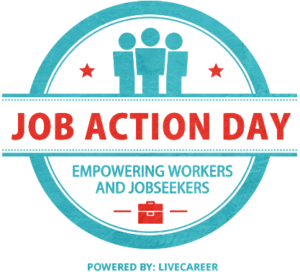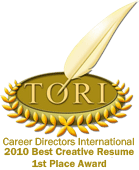 In his address to the graduates of Prager University (see the video here), Mike Rowe advised against following their passion to choose a career path.
In his address to the graduates of Prager University (see the video here), Mike Rowe advised against following their passion to choose a career path.
He is right in the sense that following your passion is too simplistic. Passion can be fickle, especially in young people. You can be crazy about photography one week and taken with biology the next.
The passion you need for a career to succeed is an intense interest over time.
But here’s where Mike and I part ways. He thinks you should find opportunity and bring passion along. I believe passion is the first step on the way to making a career choice that is a good fit for you.
The thing is, a lot of people don’t know how to identify their passions.
You can have so many interests and activities that it is hard to sort them out. A client recently completed an interest survey and a skills assessment. He found out that he likes nearly everything, and he is good at nearly everything. No wonder he is having trouble deciding on a new career!
Others, including a friend of mine, say they have no passions. My friend wished out loud that she could identify just one thing she is really good at. The only thing she really loves, she said, is being in charge. The industry and environment don’t matter much to her. She just likes to be the one running the show. She is a magnificent manager. Her employees love to work for her, and she makes the business buzz. I’d say she actually does have a passion, and she has let it inform her career decisions for most of her life. It just didn’t sound like a passion to her.
Discover your passion
Answer these questions to learn what your passion is. Remember, it doesn’t necessarily have to do with work.
- What do YOU like to do? Not your friends, not your spouse, not your children or neighbors or family, but you. Imagine an entire day that you didn’t have a single responsibility, nothing but free time. What would you do?
- What makes time fly? When do you lose track of time? What are you doing when you look up and two hours have passed as if they were mere minutes? That state is called flow, and it means you have tapped into your passion.
- What gives you energy? What do you do that leaves you feeling happy, content, or fulfilled?
Find your talents
As Mike said, it takes more than passion to create a fulfilling career. You could be passionate about singing but, unlike Mike, have absolutely no talent for it.
To avoid that disaster, you need to identify your talents and gifts.
- What comes naturally to you? What do you do that seems effortless to you? Do you hear others complain about a task that you find easy?
- What do you do that others comment about? Do they say you make doing something look easy? Do they say they wish they could do something as well as you do?
- What do people ask you to do for them? Are you asked for advice? In what subjects? What things do your friends and family ask you to help them with?
Look for opportunity
If there is a point at which your passion and talent intersect, that is a career possibility. Your innate talent will give you a head start, and your passion will give you the fuel to keep at it, even when challenges arise.
When you have found that point, look for an opportunity to put your passion and talent to work.
- What type of jobs might use the talent you discovered?Google your passion and talent with the word “jobs.” For example, someone interested in singing could search on “music jobs,” “singing jobs,” or “vocalist jobs.”
- Read about people who work in that field. Your Google search may reveal some. You can also ask a Reference Librarian at your local public or university library. They are extremely helpful.
- Find your people. Join an association, club, or group of people who like what you like. Ask them how they use their passion and talent in their work.
- Is there a career path beyond the first job? What are the opportunities for advancement?
Develop your skills
Finding a career that uses your passion and talent is only the beginning. Even Olympians, the most gifted athletes in the world, keep developing their skills, keep learning, keep practicing their art. No matter how talented and inspired you are, you must continue to grow and feed your passion, or it will die.
- Learn what you need to know. Do you need training? Education? A graduate degree?
- Where is that knowledge available? Do you need to relocate?
- How much does training cost? How long will it take?
- Is there continuing education available? How do you stay interested and active in your field?
Persist
Finally, generate as much determination, persistence, and enthusiasm as you can manage. You will need all of it to get where you want to go, and it will be worth every bit of effort you put forth.
This post is part of Job Action Day 2016, a day of empowerment for workers and jobseekers. It’s designed to help people at all stages in their professional lives assess their careers, make plans, and take action steps.
Image courtesy arcadante via Freedigitalphotos.net.








